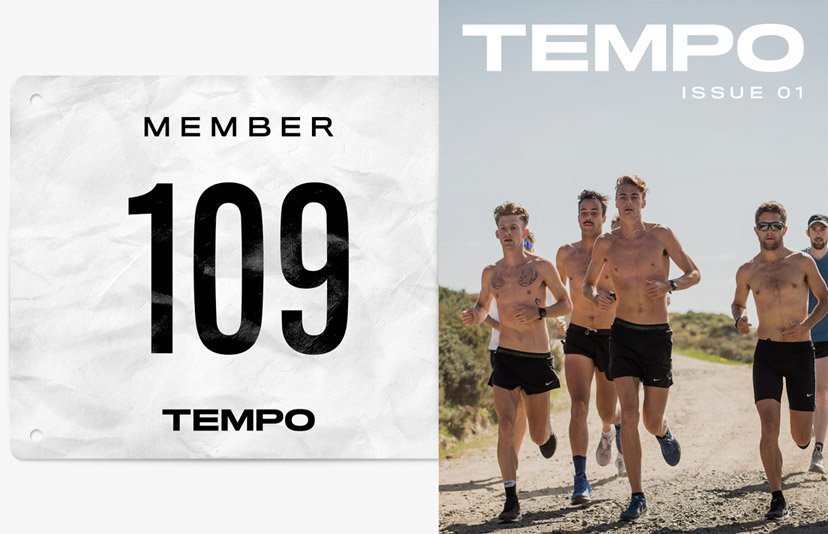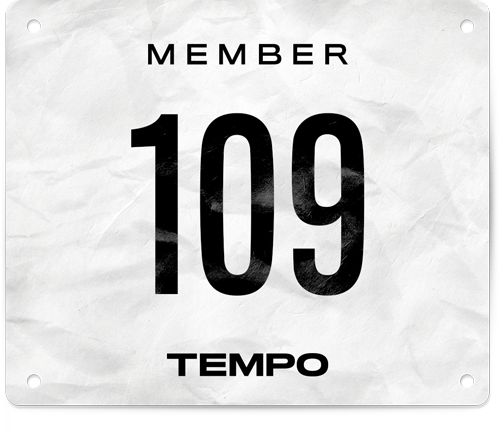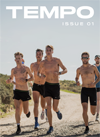Culture
Runtrepreneurship
The changing face of being a professional runner
Dave McNeill is more than a TEMPO columnist: he's a three-time Olympian, a physiotherapist and a run coach. Catch him writing for us every couple of months.
What it means to be a professional runner has evolved over the years. It used to be that winning was all that mattered. Now though, numerous cultural, political and technological influences have emerged to affect how a runner financially gains from the sport.
To add first-hand perspective on what a professional athlete is today, I reached out to Izzi Batt-Doyle and Riley Cocks, the founders of RunAsOne, a thriving coaching business and community hub based in Adelaide. Izzi and Riley are also elite professional athletes themselves, having both represented Australia on the world stage.
I also spoke with Olympian Brett Robinson, who co-founded Pulse Running, an online run coaching business, and the For The Kudos podcast, an ambitious first step into the running media scene. Pulse Running is a collaboration with fellow Olympians Jack Rayner and Collis Birmingham; For The Kudos is a collaboration with training partner Joel Tobin-White.
“A runner’s success can be harnessed in unique and meaningful ways to produce not only products but also communities and services.”
Dave McNeill
This article is my attempt to make sense of what people like Izzi, Riley and Brett are doing – what the Stephanie Bruces, Kyle Merbers, Kara Gouchers, Nick Symmondses and Lauren Fleshmans started doing over a decade ago. These are the “runtrepreneurs”.
Performance has always been simultaneously the most objective and the cruellest determinant of financial reward. Prize money represents the most direct exchange of money for performance and remains a staple source of income for many runners, especially on the roads. But this only rewards the top few. Finishing fourth or lower can mean financial failure.
For those with no base salary, it makes for a volatile profession. Even for the few winners, there are no guarantees it can be sustained.
Fortunately, over time, more forgiving models linking performance with monetary reward began to develop. Sponsorships, especially from shoe companies, slowly evolved with the professionalisation of the sport during the 1960s and 70s. The exchange became contingent on the performer wearing a particular brand of shoes and apparel and that brand then being able to reliably attribute the sale of those same commodities to the sponsored athlete’s performance.
Still, in the early days, this largely came back to performance. Those who ran – and won – in the biggest, most visible races were rewarded with sponsorships. Consumers associated winning with status and prestige, and the brands followed.
Before the internet and social media, the most we saw of professional runners was on TV screens or in magazines and newspapers, with the focus on winning and results. The time, space and means had not evolved to explore professional runners’ other valuable aspects, such as their background stories, perspective and personalities.
And while things like the internet and social media have come a long way, even today most elite athletes still aspire to make a financially viable career from prize money or a sponsorship.
For many aspiring professional runners, their very identity gets tangled up in a convoluted link between money, performance and sponsorship. Without these things, it can be hard for some aspiring professional athletes to find meaning in it all. Too focused on the destination, they forget the journey.
Some athletes still resent the fact there isn’t a linear relationship between performance and sponsorship dollars. Meanwhile, the sponsors have long since moved on from relying solely on performance to market and sell their products. Shoe companies have invested in stories, unique perspectives and personality in proportion to the increased exposure generated by the internet and social media. And for many years now, they’ve had a monopoly on it.
This is despite the potential that our increasingly connected world offers runners to sell more than their performance. Around 15 years ago, a handful of entrepreneurial American runners, in the proverbial land of opportunity, started taking opportunities to create financially viable running careers beyond prize money and sponsorship. Lauren Fleshman, who represented the United States on the track multiple times, was, and is, a brilliant wordsmith. She began telling a story – a story about the world of running but unmistakably her story. Readers were captivated and a community began to form. She was an activist, and she was insightful.
At the same time, she and her partner Jesse Thomas, along with fellow professional runner and friend Stephanie Bruce, saw a market need for low-allergy energy bars and supplements. They made a gluten-and-dairy-free nutritional bar they called Picky Bar and began sharing it with the world. Fast forward a decade and the trio sold the company for US$12 million. While Lauren is now retired, Stephanie still runs professionally, with plans to retire later this year.
Through a particular lens, the Picky Bars story is an example of how a runner’s success can be harnessed in unique and meaningful ways to produce not only products but also communities and services.
During the early days of Covid, when gyms closed and running became one of the few physical activities available to people, one market potential grew exponentially: online run coaching. Professional runners suddenly found demand for a skill set they lived and breathed, and the work’s flexibility complemented the demands of elite-level training.
Olympian Brett Robinson was one such person to grab the mid-Covid opportunity: “Everyone started running, getting injured, and then realising, ‘Hey, I need some help here.’”
Robinson also noted the common ground between elite and recreational runners and saw that as something he could help with. “At the end of the day, they’re doing it for fun, but everyone still wants to get the best out of themselves, and I felt like I could help them do that.” Along with his friends and training partners Jack Rayner and Collis Birmingham, he started an online run coaching business, Pulse Running. In Melbourne, the trio has also launched a weekly Wednesday community run and a monthly Saturday coffee run. “We’re really trying to build a community. We want people to feel like they’re a part of something.”
It’s not just budding runtrepreneurs that know the social, cultural and performance value of team and community. There is an emerging trend among sponsors to invest in training groups instead of individuals. Many new shoe contracts are contingent on an athlete belonging to a training group. Nike, adidas and On Running groups across the US, and the NN Running groups across East Africa, are testament to this.
Team and community have obvious performance benefits. Strength in numbers, as they say. But there is a marketing opportunity, too. Just as budding football and basketball fans have their favourite teams, fans of running can now support and identify with teams of their own. You might not know every single runner on the NN Running team but if you’re a fan of the sport you’ll know their white-and-orange uniform. Except for the sport’s superstars perhaps, brand recognition often works better with a team than an individual.
At a recreational level though, community and team culture are not traditionally associated with running. Most people’s idea of running is a solitary one, even as the rise of run crews begins to challenge this. But the benefits of community are numerous, affecting physical, mental and social health. This growth can happen more organically when tied to a service like Pulse Running or RunAsOne. The business and community exist symbiotically, and Brett speaks proudly about the ripple effect of Pulse’s investment in community: “The cool thing about [our Wednesday runs] is now we see some of those people meeting and running together outside of those runs.”
For Riley and Izzi, growth has been so steep that their post-training gatherings were getting too busy to take to cafes. Instead, they opened their own retail and coffee hub close to their usual training spots.
Beyond simply building successful businesses or services, Riley, Izzi and Brett would be the first to admit they get just as much out of their communities as they give back.
These days, Brett finds himself heeding his own words: “When I’m talking to an athlete and giving them advice, I find myself thinking now, ‘Hey, I should do these things too.’ It has allowed me to take a step back and look at it from that outside view.”
For Izzi, RunAsOne has been an ego check. “I no longer value myself just based on my race results”, she says. “I think it’s going to allow me to have a much healthier and long-term relationship with my elite running, because I see it in a different way now, because I now have perspective on a lot more things”.
Talking with the three athletes, it was great to hear how their new ventures had given them fresh perspectives and more balanced ways of valuing their long-term professional careers. My own wonder in listening to these budding entrepreneurs comes from their humility – and there is a beauty seeing it manifest in service and being rewarded.
Much is said of the difficulty the sport of running finds itself in when trying to professionalise and be profitable. But the three athletes I spoke to, and the trail-blazing runtrepreneurs before them, show us that professional runners have far more to offer the world than just place numbers and performance.


